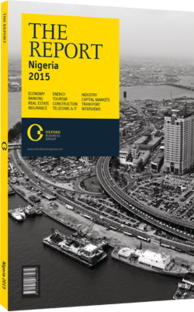Ernest Nwapa, Executive Secretary, Nigerian Content Development and Monitoring Board (NCDMB): Interview

Interview: Ernest Nwapa
How would you describe the impact of the Local Content Act on the oil and gas sector?
ERNEST NWAPA: We are seeing growth in every segment of the industry, particularly in operating and service companies. Things that we once said could never be done in Nigeria are now almost taken for granted. We are fabricating large and complex offshore modules and subsea structures, manufacturing oil and gas equipment and components, and owning and operating offshore rigs and other marine assets. Nigerian facilities are breaking new ground and carrying out high-tech and complex projects. While there are challenges, such as higher costs and sometimes longer execution timelines, these issues are becoming a thing of the past, especially after a job is carried out a few times.
The industry has also become more competitive as companies are investing in developing facilities incountry. We believe the long-term impact of what we do today will drive costs down. The fact that the Local Content Act is also requiring Nigerians to do things incountry also means that facilities have to be built and existing infrastructure has to be upgraded. Today over $5bn in investments have specifically been directed into developing facilities in Nigeria. Admittedly, we have recently experienced a decline in oil prices and a lull due to the non-passage of the Petroleum Industry Bill, among other issues. Even so, it is our view that investors have shown confidence in the Nigerian economy.
What more can be done to help encourage local energy firms to go public?
NWAPA: In the past, international oil companies were the major stakeholders operating assets in the Nigerian oil and gas industry. Today we are seeing independent producers and indigenous companies operating exploration and production (E&P) assets. There have also been several divestments of assets from multinational firms to domestic E&P companies. This development is a result of the government’s goal of seeing more Nigerians participating across the oil and gas value chain. Seplat’s successful initial public offering is another testimony to the impact of Nigerian content and shows that local companies are growing and competing in the international arena.
The NCDMB is also engaging indigenous E&P firms at the leadership level to bring local operators fully on board with our initiatives and to address challenges with compliance. We believe the board’s interventions, such as the Nigerian Content Development Fund (NCDF), the Nigeria Oil and Gas Industrial Parks Scheme, and the Nigerian Content Consultative Forum, will help to enable domestic companies to develop their businesses to the point where they can attract investment.
How would you rate the skills gap between prospective Nigerian employees and job requirements?
NWAPA: We have ensured that thousands of Nigerians are trained in geosciences, petroleum engineering, fabrication, welding and subsea engineering, as well as other disciplines under the industry projectbased training programme. As part of this initiative, a training budget is allocated and set aside on all projects executed in the industry. This budget is utilised to train Nigerians who are part of the Nigeria Oil and Gas Joint Qualification System, bringing them up to international certification levels in project-specific areas. The trainees are also attached to companies or projects being executed for a minimum of one year, after which a certain number are integrated into the project or engaged directly by companies.
The board also carries out direct interventions in human capital development, funded by the NCDF. These interventions include capacity-building programmes to train more Nigerian workers in scaffolding, machining, electrical, oil spill management, environmental remediation training and geosciences, as well as a host of other skill areas. Candidates who complete the training programmes are attached to operating and service companies to gain experience. Around 70% of these trainees have been absorbed into the workforce.
You have reached the limit of premium articles you can view for free.
Choose from the options below to purchase print or digital editions of our Reports. You can also purchase a website subscription giving you unlimited access to all of our Reports online for 12 months.
If you have already purchased this Report or have a website subscription, please login to continue.

